Deep frying is a popular cooking method, especially during the holiday season. While deep-fried food isn’t particularly healthy, the taste certainly is. However, deep fryers should not be used without following some safety precautions, as they can be extremely dangerous and are responsible for thousands of house fires each year.
To keep you, your family, and your home safe while enjoying your favorite deep-fried foods this holiday season, it’s important to follow these basic deep fryer safety tips.
This article’ll explore some important safety considerations for using a deep fryer. We’ll cover everything from selecting the right equipment to safe operating procedures, so you can feel confident cooking delicious fried foods without risking yourself or your family.
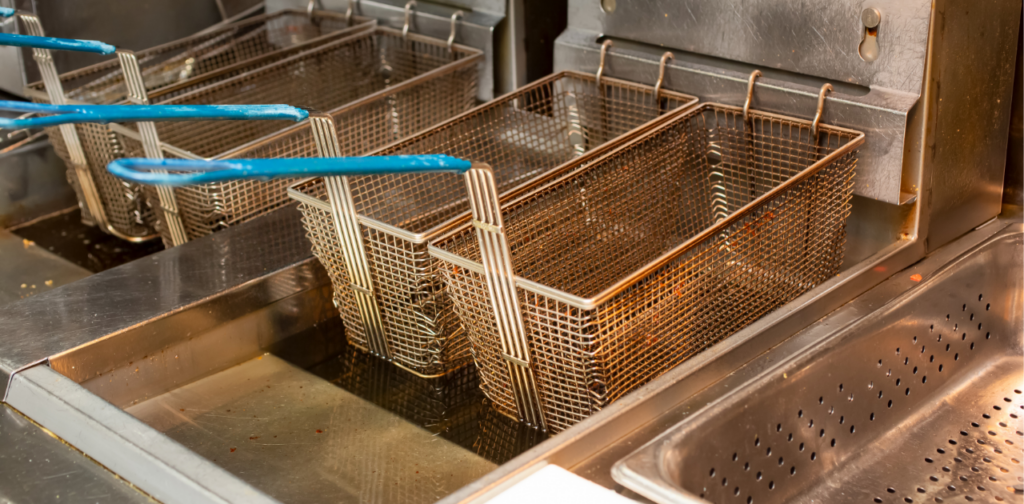
How Do I Make Sure My Deep Fryer Is Safe to Use?
To ensure the safety of your deep fryer, it is important to follow a few key guidelines. First and foremost, read the instruction manual provided by the manufacturer.
This will provide you with essential information regarding operating procedures, recommended temperature settings, and maintenance instructions specific to your fryer model.
Place your deep fryer on a stable and heat-resistant surface when setting it up. Ensure it is positioned away from flammable materials such as curtains or paper towels to prevent fire hazards.
Proper oil usage is crucial for safety. Avoid overfilling the fryer with oil, which can cause spills or splatters. Refer to the manual to determine the appropriate oil level for your fryer.
Additionally, use a thermometer to monitor and regulate the temperature of the oil. Overheating the oil can lead to oil fires or damage the fryer, so it’s important to maintain the correct temperature.
Never leave your deep fryer unattended while it’s in use. Stay alert and monitor the cooking process to prevent any accidents. Hot oil can cause fires or burns if left unattended, so it’s important to exercise caution.
Use protective gloves or tongs to avoid burns when handling the fryer basket or removing food from the oil. Allow the oil to cool down before disposing of it.
Regular cleaning and maintenance are essential for safe operation. Follow the manufacturer’s instructions for proper cleaning procedures and frequency. Regular maintenance will not only ensure safe operation but also prolong the lifespan of your deep fryer.
Lastly, keep children and pets away from the deep fryer while it is in use. The hot oil and surfaces pose a significant risk, so it’s important to create a safe environment by restricting access.
By adhering to these safety guidelines, you can enjoy the use of your deep fryer with peace of mind, minimizing the risk of accidents or injuries.
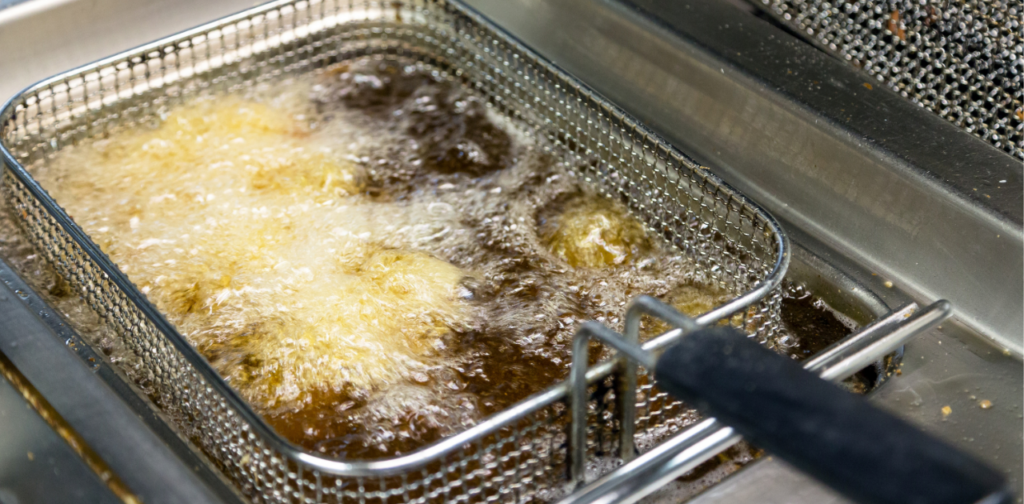
Some Tips To Stay Safe And Cooking
1. Set Up Your Deep Fryer Outdoors
When setting up a deep fryer, it is important to ensure it is done safely. One of the best ways to ensure that your deep fryer is safe is to set it up outdoors. This will help keep the risk of fires and grease splatter to a minimum.
The first step in setting up a deep fryer outdoors is finding a suitable location. It’s best to set up your deep fryer on a level surface away from flammable materials like trees, shrubs, and buildings. Make sure you also have access to an electrical outlet.
2. Read The Instructions Carefully
Before using your deep fryer for the first time, you should read the manufacturer’s instructions carefully. Understanding how your deep fryer works will help you operate it safely and get the most out of it.
The instructions should provide information about how to fill the fryer with oil, what temperature settings to use, and any other safety measures you should take. Following these instructions carefully will ensure that your deep fryer is safe.
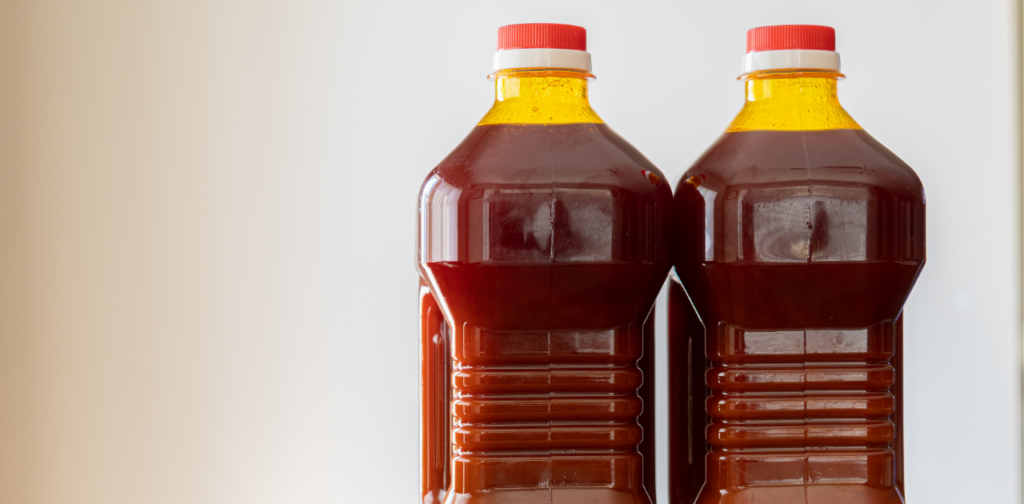
3. Use The Right Oil
Using the right type of oil is important when deep frying. It is best to use an oil with a high smoke point, such as peanut or vegetable oil. This will help prevent the oil from smoking and catching fire.
You should also pay attention to how much oil you are using. Ensure you don’t overfill the fryer, which can lead to spills and splatters. Refer to your manufacturer’s instructions to determine the appropriate amount of oil to use.
4. Monitor The Temperature
It is important to keep an eye on the temperature of the oil when deep frying. This will help you prevent the oil from getting too hot, which can lead to fires or damage to your fryer.
You should also use a thermometer when deep frying. This will allow you to monitor the oil temperature never to get too hot. In addition, you should never leave your deep fryer unattended. Stay alert and monitor the cooking process to ensure everything goes smoothly and safely.
Finally, follow the manufacturer’s instructions for cleaning and maintenance to keep your deep fryer in top condition.

5. Cook Raw Foods
If you’re considering deep-frying something from frozen, beware. Frozen food can cause the oil inside your deep fryer to bubble and splash onto nearby surfaces, potentially causing serious burns or other injuries.
Though any food can be fried safely as long as it’s thawed first, frozen food doesn’t give you much time to adjust how hot your oil is before the large amounts of water droplets it contains cool down the oil too quickly.
If not done in a controlled environment with proper safety measures, the temperature change could result in an explosion or spatters of boiling oil splashing out of the appliance.
It is important to follow all instructions provided by the manufacturer of your deep fryer. This includes proper usage information, storage instructions, and other safety measures the manufacturer advises. These guidelines will help keep your deep fryer running safely and efficiently.
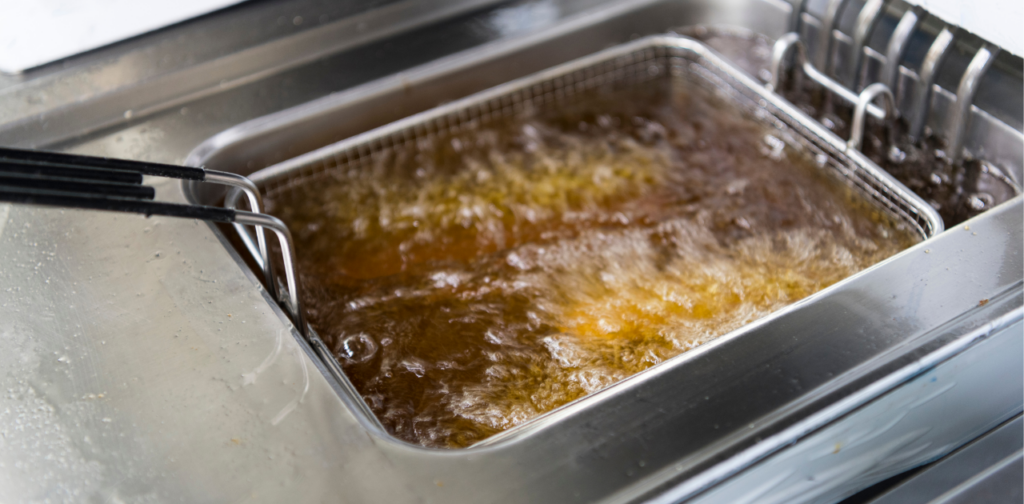
Can Using Wrong Oil Create Denger?
Using the wrong oil in a deep fryer can be dangerous and create a fire hazard. It is important to ensure that an oil is safe for use in a deep fryer before you begin cooking.
When selecting an oil for your deep fryer, choosing one with a high flash point is important. The flash point of an oil is the temperature at which it begins to smoke and give off fumes.
Oils with a high flash point are less likely to catch fire if they overheat. Examples of oils with a high flash point include vegetables, canola, peanut, and olive oil.
It is important always to follow the instructions provided by your deep fryer’s manufacturer. This includes guidelines for proper use, storage, and maintenance. Not following the instructions can lead to accidents or malfunction of the appliance.
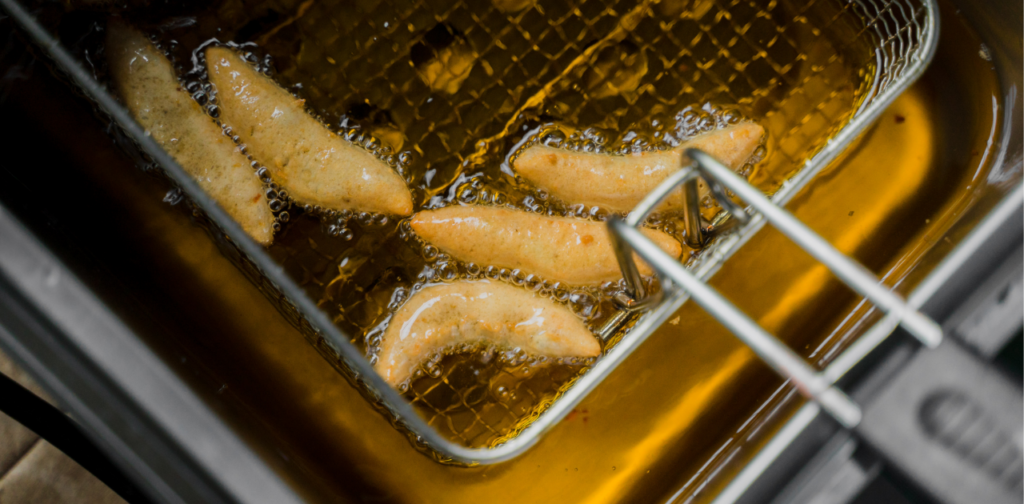
How Can You Tell If Deep Fryer Oil Is Bad?
Observing its appearance, smell, and performance, you can determine if deep fryer oil is bad or no longer suitable. Here are some signs to look for:
- Color and Clarity: Fresh oil typically has a clear and golden appearance. If the oil turns dark or cloudy, it may indicate that it has degraded and should be replaced.
- Smell: Rancid or off-putting odors indicate that the oil has gone bad. If you notice a strong, unpleasant smell coming from the oil, it’s a sign that it’s time to discard it.
- Taste: If you detect any strange or bitter taste in the fried food, it could be a result of the oil being rancid. The oil’s flavor can transfer to the food during the frying process.
- Foam or Residue: Over time, impurities and food particles can accumulate in the oil, forming foam or sediment. If you notice excessive foam or visible debris when using the fryer, it may indicate degraded oil.
- Smoke Point: If the oil starts smoking at a lower temperature than usual or emits smoke before reaching the desired temperature, it suggests the oil is breaking down and becoming less stable.
- Poor Frying Performance: If you notice that the food is not frying evenly or doesn’t achieve the desired crispness, it could be due to degraded oil. Fresh oil is essential for achieving optimal frying results.
It’s important to note that deep fryer oil has a limited lifespan and will degrade over time with repeated use. Regularly monitoring the oil’s quality and replacing it when necessary is crucial to ensure the best frying experience and food safety.
Refer to the manufacturer’s recommendations or consult the instruction manual for specific guidelines on oil replacement.
Frequently Asked Questions [FAQs]
1. How Often Should I Change The Deep Fryer Oil?
The oil change frequency depends on several factors, such as the type of oil used, the frying temperature, and the number of times the fryer is used.
As a general guideline, changing the oil every 8 to 10 uses or every 20 hours of frying time is recommended. However, if you notice any signs of degradation or off-putting odors, it’s best to change the oil immediately.
2. Can I Reuse Deep Fryer Oil?
Yes, you can reuse deep fryer oil for multiple frying sessions. However, it’s crucial to strain the oil after each use to remove any food particles or debris. Additionally, monitoring the oil’s quality and discarding it when it shows signs of degradation, such as darkening color or off-smells, is recommended.
3. How Should I Store The Deep Fryer Oil?
Store deep fryer oil in a cool, dark place, away from direct sunlight or heat sources. Ensure the oil is completely cooled before transferring it to a sealed container. Use a container for storing oil to avoid cross-contamination with other food items. Proper storage helps maintain the oil’s freshness and extends its shelf life.
4. Can I Mix Different Types Of Oils In The Deep Fryer?
Mixing different types of oils in the deep fryer is generally not recommended. Each type of oil has its own smoking point and flavor profile, which can affect the frying process and the taste of the food.
Mixing oils with significantly different smoking points can lead to inconsistent frying results and potentially even cause the oil to smoke or catch fire.
5. How Do I Dispose Of Used Deep Fryer Oil?
It’s important to dispose of used deep fryer oil properly. Avoid pouring it down the sink or toilet, as it can clog the plumbing system. Instead, let the oil cool completely, then transfer it to a sealable container.
You can check with your local waste management or recycling center for guidelines on proper oil disposal. Some locations have designated collection points for used cooking oil, which can be recycled into biofuel or other useful products.
Conclusion
Ensuring the safety of a deep fryer involves regularly monitoring the oil’s quality and replacing it as necessary. Proper storage and disposal of used oil are also essential for food safety. These tips can help you achieve optimal frying performance while keeping your deep fryer safe.

Meet our air fryer recipe expert, Jenny J. Brown. Jenny is a culinary enthusiast with a passion for creating healthy, delicious meals using the latest kitchen appliances. As an experienced home cook and food blogger, Jenny has spent years experimenting with air fryer recipes and perfecting her techniques to create meals that are both nutritious and satisfying.
